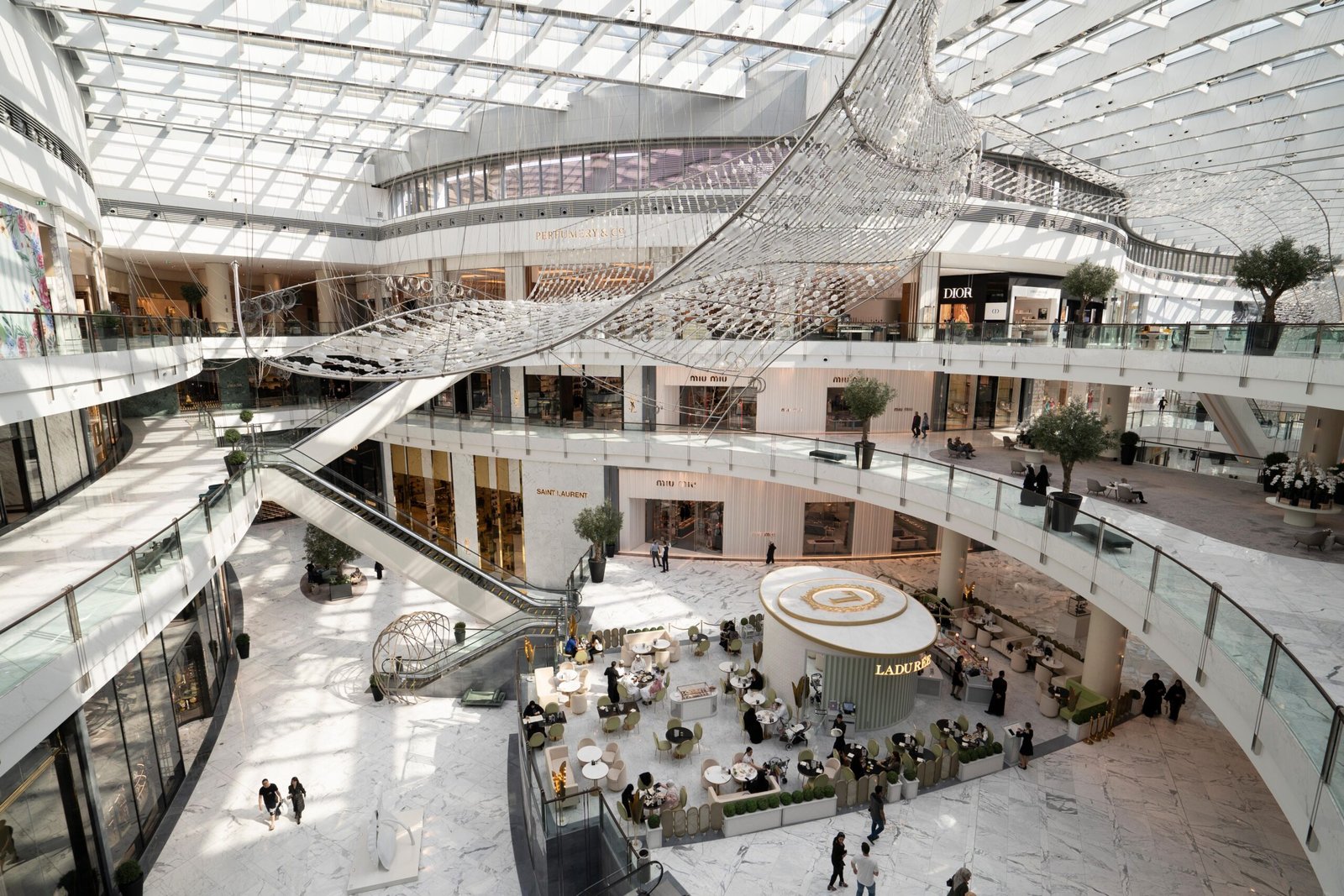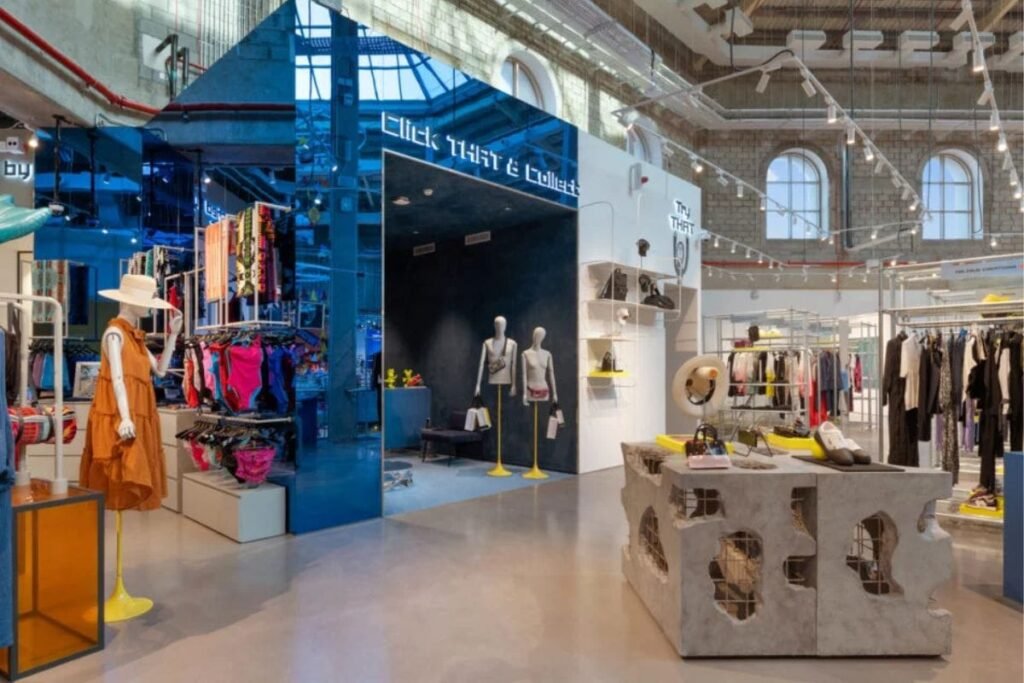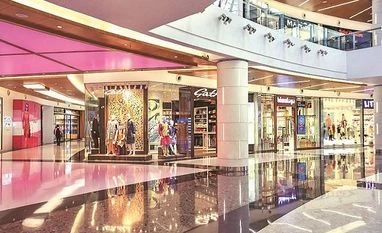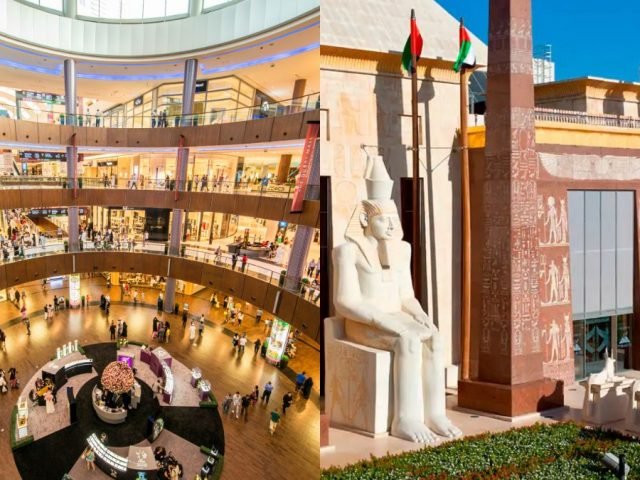
Dubai is a city that thrives on shopping. From ultra-luxurious malls to charming high-street boutiques, its retail scene is as diverse as it is dynamic. But which type of retail space reigns supreme? Let’s take a deep dive into the world of Dubai’s malls and high-street shops, exploring their differences, benefits, and what the future holds.
Dubai’s malls are not just places to shop—they are destinations. With expansive spaces, luxurious interiors, and endless entertainment options, malls like The Dubai Mall and Mall of the Emirates are more than just retail hubs. They offer a holistic experience that goes beyond purchasing products.
Malls in Dubai are designed to be family-friendly and engaging. From ice rinks to indoor aquariums, cinemas, and gourmet food courts, these retail spaces attract both tourists and residents alike. The appeal is not just in shopping but in offering a full-day experience.
Key Advantages of Dubai Malls:
Despite their glamour, malls have a few challenges. Rental costs are high, making it difficult for small businesses to thrive. The competition is intense, and the sheer scale of these spaces can overwhelm shoppers seeking a more personal experience.
High-street shopping in Dubai is a completely different experience. Unlike the grand malls, high-street shops, found in neighborhoods like Jumeirah, Al Quoz, and City Walk, offer an intimate and personalized environment. These retail spaces often blend seamlessly with lifestyle, cafes, and boutique services, giving shoppers a more curated experience.
High-street shops emphasize unique offerings and a human touch. Owners can interact directly with customers, understand preferences, and adapt offerings quickly. This level of personalization creates a loyal customer base, which is often challenging for larger malls to achieve.

Key Advantages of High-Street Shops:
However, high-street shops face challenges such as limited footfall compared to malls and less visibility for international tourists. Marketing and strategic location become crucial for survival.
For retailers, cost is one of the most important factors. Dubai malls offer access to millions of visitors but at premium rental rates. Annual rent for a prime mall location can be significantly higher than a high-street shop, making it viable mostly for well-established brands or luxury retailers.
High-street shops, while more affordable, require proactive marketing to attract consistent foot traffic. Costs for maintenance, staff, and interior design are generally lower, but the challenge lies in sustaining a steady stream of customers.
Example Cost Insights:
Ultimately, the choice depends on a retailer’s target audience, business model, and budget.
Understanding shopper behavior is key to evaluating the retail space landscape. Mall visitors in Dubai are often looking for a comprehensive experience: shopping, dining, and entertainment all in one location. Tourists, families, and luxury shoppers dominate this segment.
High-street shoppers, on the other hand, often seek specific products, authenticity, and a local touch. This group values quality over quantity and enjoys exploring unique stores rather than generic retail chains.
Behavioral Differences:
Retailers must tailor their strategies to these consumer preferences to maximize engagement and sales.

The rise of online shopping has influenced both malls and high-street shops in Dubai. Malls are integrating e-commerce strategies, offering click-and-collect services and app-based promotions. High-street shops, while smaller, have leveraged social media and online marketplaces to enhance visibility and sales.
Retailers are increasingly adopting hybrid models: physical presence for experience and branding, complemented by online convenience. This approach ensures resilience in a competitive market.
E-commerce Influence Highlights:
Location is a critical factor in retail success. Malls are strategically located near tourist hubs, major highways, and densely populated areas. High-street shops often thrive in residential and commercial districts where community engagement is high.
Key Location Insights:
Retailers often use location analysis and customer insights to decide between mall spaces and high-street shops based on their business objectives.
Dubai malls are masters of experiential retail. Interactive displays, celebrity events, pop-up stores, and themed installations attract shoppers beyond traditional commerce. This creates emotional engagement, increasing the likelihood of repeat visits.
High-street shops may not have the scale for large experiences but can offer personalized workshops, meet-and-greet events, and bespoke services, providing intimacy and exclusivity that malls cannot replicate.
Sustainability is becoming a priority in Dubai’s retail sector. Malls are investing in energy-efficient systems, waste reduction, and sustainable design. High-street shops are adopting eco-friendly materials, locally sourced products, and green practices.
Future trends suggest a blend of both worlds: mall-style convenience and entertainment combined with high-street authenticity and personalization. Retailers embracing technology, sustainability, and customer-centric experiences will likely dominate.
There is no clear winner—it depends on business goals, target audience, and brand identity. Malls provide scale, visibility, and a luxurious experience, ideal for established and international brands. High-street shops offer personalization, niche appeal, and flexibility, ideal for small businesses and boutique retailers.
The key is strategic alignment: understanding market demands, consumer behavior, and operational feasibility. Many successful brands in Dubai operate in both environments, leveraging the strengths of each.

Dubai’s retail spaces are diverse, dynamic, and evolving rapidly. Malls symbolize grandeur, experience, and international appeal, while high-street shops provide charm, connection, and niche specialization. For retailers, understanding these differences is critical for success.
Whether you are a retailer planning your next move or a shopper seeking the best experience, Dubai’s retail scene offers something for everyone. The future will likely see hybrid models, technology integration, and sustainable practices, reshaping how we shop and interact with retail spaces in this vibrant city.
Do Follow Estate Magazine on Instagram
Maximize Rental Yield in Dubai: Proven Tips for Smart Investors
